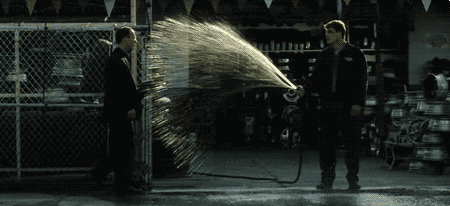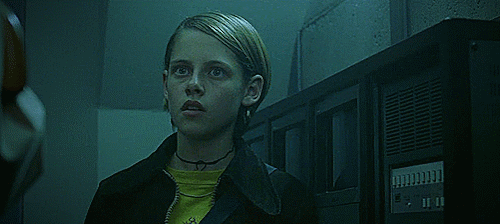- Joined
- Oct 12, 2006
- Messages
- 62,004
- Reaction score
- 16,719
Oh yeah.Spoilers for The Game
I can't remember if it was shot or not, but the original ending had Nicholas actually shooting his brother at the end with a real bullet, finding out it was just a game, and wandering off the building.
No.
FIGHT CLUB follows the tradition common to peers like TRAINSPOTTING (1996) and AMERICAN BEAUTY (same year): unhappy with the current state of affairs a protagonist engages in questionable practices until ultimately realizing avoiding the way things are is what's ruining life. It's a take on the classic hero's journey, but rather than gain a panacea it's about regaining identity and perhaps joie de vivre.I'm confused here on what you mean. How did the audience "not get it"?
But unlike FIGHT CLUB no one thinks TRAINSPOTTING is promoting the abuse of heroin or that Kevin Spacey would ever fuck a girl let alone an underage one. FIGHT CLUB gets blamed and denigrated (and lauded and celebrated) because critics (and fans) think it's a film that embraces bad counter-culture behavior. And even though Edward Norton (us) figures out his own bad behavior via a dissociated identity and spends the last twenty (although it feels like an hour) of the film trying to convince Brad (us, again, but in a different perspective) that THIS ISN'T THE WAY -- it doesn't stick as much as all the good shit at the beginning when they (we) got to act the fool.
It's not that people didn't get it-get it -- it's that most of us clung to the wrong notion.
In some ways, it's a perfect film that becomes the same as what it's talking about: a misunderstood idea. But THE GAME is more perfect, and so is PANIC ROOM.





